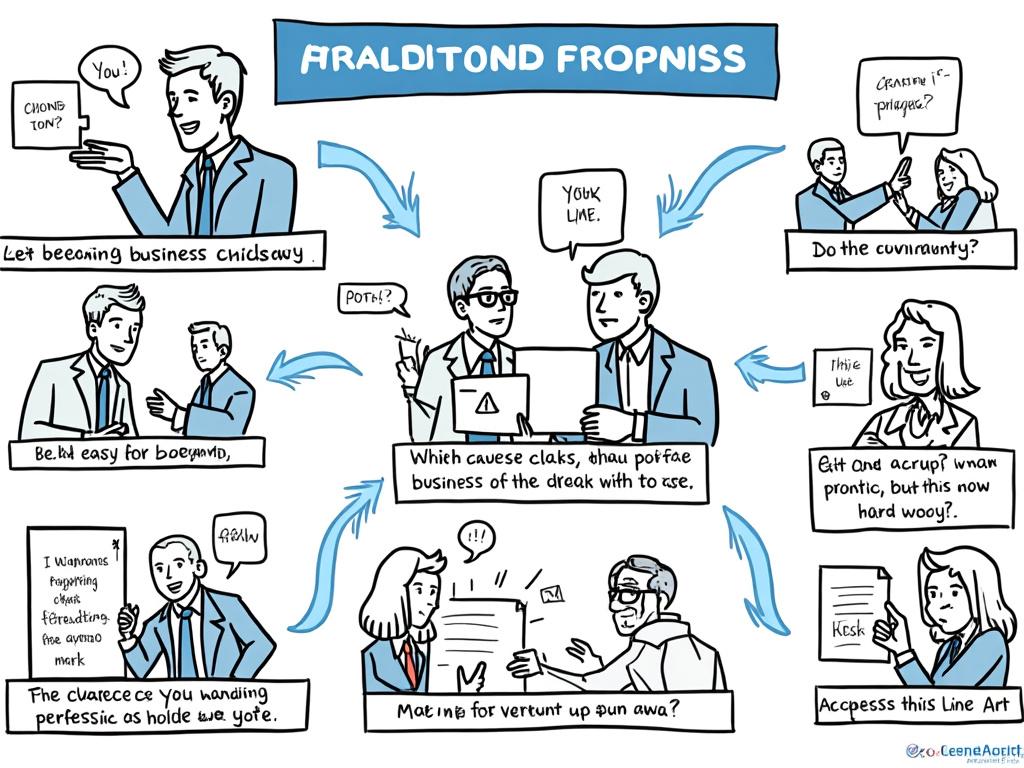
Top Mistakes to Avoid in Any Golden Visa Application
Reading time: 12 minutes
Ever dreamed of securing a second passport or residence through investment, only to watch your application get rejected due to preventable errors? You’re not alone. Golden visa applications represent one of the most complex yet rewarding paths to international mobility—but the stakes are incredibly high.
Table of Contents
- Understanding the Golden Visa Landscape
- Critical Documentation Errors That Kill Applications
- Financial Compliance Pitfalls
- Program-Specific Requirements: One Size Doesn’t Fit All
- Timing and Strategic Considerations
- Your Golden Visa Success Framework
- Frequently Asked Questions
Understanding the Golden Visa Landscape
Let’s face the reality: Golden visa programs aren’t just about writing a check. They’re sophisticated legal frameworks designed to attract serious investors while maintaining national security standards.
Here’s the straight talk: Success isn’t about having the most money—it’s about strategic preparation and meticulous attention to detail.
The High-Stakes Reality Check
Consider this sobering statistic: Approximately 30-40% of golden visa applications face delays or rejections due to avoidable mistakes. That’s potentially hundreds of thousands of dollars and months of preparation down the drain.
Quick Scenario: Imagine you’re a tech entrepreneur from India looking to secure Portuguese residency through their €500,000 investment fund option. What could go wrong? Let’s dive deep and turn potential pitfalls into strategic advantages.
Golden Visa Success Rates by Program (2023 Data)
85% approval rate
78% approval rate
82% approval rate
65% approval rate
Critical Documentation Errors That Kill Applications
The Apostille Nightmare
Mistake #1: Incorrect document authentication
Here’s a real-world example that’ll make you cringe: Sarah, a successful Canadian real estate developer, spent six months preparing her Spanish golden visa application. Everything looked perfect—until authorities rejected her criminal background check because it wasn’t properly apostilled according to Hague Convention requirements.
The cost? €50,000 in legal fees and a 12-month delay.
Pro Tip: Each document must be apostilled in the country where it was issued, not where you currently reside. This single detail trips up 40% of first-time applicants.
Translation Traps
Mistake #2: Using uncertified translations
Well, here’s the brutal truth: Google Translate won’t cut it for golden visa applications. Every non-English document requires sworn translation by certified professionals recognized by your target country’s authorities.
Critical Documentation Checklist:
- Criminal background checks (both home country and countries of residence)
- Medical certificates meeting specific program requirements
- Proof of funds with 6-month banking history
- Source of funds documentation with detailed paper trail
- Investment commitment letters from authorized entities
Financial Compliance Pitfalls
The Source of Funds Dilemma
Mistake #3: Inadequate source of funds documentation
Imagine this scenario: Ahmed, a Dubai-based businessman, could easily afford Portugal’s €500,000 investment requirement. However, his application stalled for 18 months because he couldn’t adequately document how his cryptocurrency gains translated into traditional banking assets.
| Documentation Requirement | Minimum Period | Common Mistakes | Success Rate Impact |
|---|---|---|---|
| Bank Statements | 6-12 months | Gaps in transaction history | -25% |
| Tax Returns | 3-5 years | Inconsistent income reporting | -30% |
| Business Ownership | Full history | Missing shareholder agreements | -20% |
| Property Sales | Complete chain | Incomplete valuation reports | -15% |
Investment Structure Errors
Mistake #4: Choosing inappropriate investment vehicles
Not all investments are created equal in the golden visa world. Portugal’s recent changes eliminated real estate options under €500,000, but many applicants still attempt outdated strategies.
Key Investment Considerations:
- Liquidity requirements: Can you access funds when needed for renewal?
- Maintenance obligations: Some programs require continuous investment
- Exit strategies: How will you recover your investment later?
Program-Specific Requirements: One Size Doesn’t Fit All
Residency vs. Physical Presence Confusion
Mistake #5: Misunderstanding physical presence requirements
Here’s where many applicants stumble: confusing residency status with physical presence obligations. Portugal requires just 7 days in the first year, while Spain demands substantial physical presence for citizenship pathways.
Consider Maria’s case: She chose Greece’s €250,000 real estate option thinking it offered the fastest route to EU citizenship, only to discover that Greek golden visa holders face a 7-year naturalization requirement with strict residency conditions.
Due Diligence Expectations
Mistake #6: Underestimating background check scrutiny
Golden visa programs aren’t just about money—they’re about reputation risk management for host countries. According to recent OECD data, enhanced due diligence protocols now examine social media presence, business associations, and even family member backgrounds.
Timing and Strategic Considerations
The Regulatory Change Trap
Mistake #7: Ignoring regulatory evolution
Golden visa programs evolve rapidly. Portugal eliminated most real estate options in 2023, while several Caribbean programs increased investment thresholds. Smart applicants monitor policy trends and act decisively.
Strategic Timing Framework:
- Policy monitoring: Track regulatory announcements 6-12 months ahead
- Application windows: Some programs have seasonal processing variations
- Tax implications: Consider fiscal year impacts on both home and host countries
Professional Support Selection
Mistake #8: Choosing inexperienced advisors
Not all immigration lawyers understand golden visa nuances. Look for advisors with specific program expertise, government relationships, and track records of successful applications in your target jurisdiction.
As immigration attorney Jennifer Walsh notes: “The difference between a generic immigration lawyer and a golden visa specialist can be the difference between approval and rejection. Program-specific knowledge isn’t optional—it’s essential.”
Your Golden Visa Success Framework
Ready to transform complexity into competitive advantage? Here’s your strategic roadmap for golden visa success, designed to help you navigate this high-stakes process with confidence and precision.
Phase 1: Strategic Foundation (Months 1-2)
Program Selection & Due Diligence
- Conduct comprehensive program comparison analysis considering investment thresholds, processing times, and long-term benefits
- Engage specialized advisors with proven track records in your target jurisdiction
- Begin document collection and source of funds preparation immediately
- Establish compliant banking relationships in target countries
Phase 2: Documentation Excellence (Months 2-4)
Meticulous Preparation Pays Off
- Complete apostille and certified translation processes early
- Build comprehensive source of funds narrative with supporting evidence
- Prepare for enhanced due diligence with proactive disclosure strategies
- Structure investments through proper legal entities where beneficial
Phase 3: Application Mastery (Months 4-6)
Execution and Follow-Through
- Submit applications during optimal processing windows
- Maintain active communication with processing authorities
- Prepare contingency strategies for additional documentation requests
- Plan post-approval compliance and renewal strategies
The right preparation isn’t just about avoiding problems—it’s about creating sustainable, strategic pathways to global mobility that serve your family for generations.
As golden visa programs continue evolving in response to global economic shifts and regulatory pressures, successful applicants will be those who approach these opportunities with professional rigor, strategic thinking, and unwavering attention to detail.
What’s your next strategic move toward securing the global mobility and opportunities your family deserves?
Frequently Asked Questions
How long does a typical golden visa application process take?
Processing times vary significantly by program and complexity. Portugal typically processes applications within 6-8 months, while Spain can take 12-18 months. However, preparation time should be factored in—most successful applicants spend 3-6 months preparing documentation before submission. Complex source of funds situations or enhanced due diligence requirements can extend timelines considerably.
Can I include my family members in my golden visa application?
Most golden visa programs allow inclusion of immediate family members, including spouses and dependent children. Some programs extend coverage to parents or adult children under specific conditions. However, each additional family member may require separate documentation, medical certificates, and background checks. The investment threshold typically remains the same regardless of family size, making golden visas particularly attractive for larger families.
What happens if my golden visa application is rejected?
Rejection doesn’t necessarily mean the end of your golden visa journey. Most programs allow for appeals or resubmission with corrected documentation. The key is understanding the specific rejection reasons and addressing them systematically. Some applicants successfully pivot to alternative programs or investment structures. However, rejection can impact future applications, making it crucial to get the initial submission right through proper preparation and professional guidance.

Article reviewed by Lydia Hartmann, Greenfield Development Strategist | Permits to Profitability, on July 7, 2025
